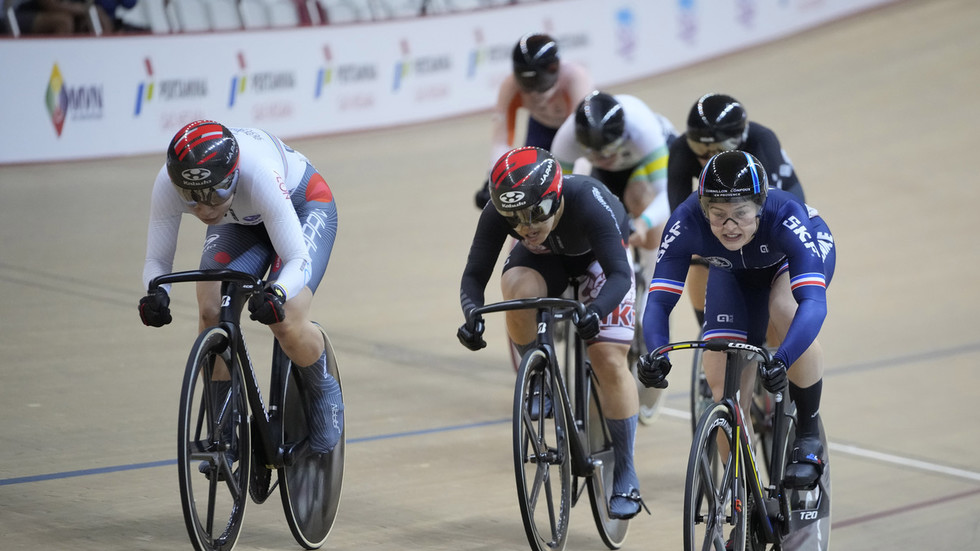
The sport’s governing body has ruled that male-to-female athletes may not compete with biological women

Japan’s Mina Sato leads the women’s final at the UCI Track Nations Cup in Jakarta, Indonesia, February 26, 2023 © AP / Achmad Ibrahim
The International Cycling Union (UCI) has barred transgender cyclists from women’s competitions, citing the unfair advantage conferred by their elevated testosterone levels. The ban follows similar measures in athletics, swimming, and rugby.
The ban was decided by the UCI earlier this month and announced on Friday. Effective immediately, males who went through puberty before transitioning to female will be banned from competing in women’s events on the UCI’s international calendar.
Instead, these athletes will compete with other men in the newly renamed ‘Men/Open’ class.
The decision builds on a 2022 ruling by the UCI, which stated that male-to-female transgender people could compete alongside women, provided that they had been undergoing hormone therapy for two years and could prove a plasma testosterone concentration of less than 2.5 nanomoles per liter. Between 10 to 35 nmol/L is considered normal in adult men, and 0.5 to 2.4 nmol/L in adult women.

Read more
However, the UCI said it had since “taken note of the state of scientific knowledge,” which does not confirm that two years of hormone therapy and a testosterone level of 2.5 nmol/L is enough to “completely eliminate the benefits of testosterone during puberty in men.”
Additionally, the organization stated that transgender women may enjoy “biomechanical advantages” due to their male bone structure.
The UCI is one of multiple international sporting organizations to ban transgender competitors in recent years. World Athletics, the governing body for track and field and other running competitions, issued a similar ruling last year excluding transgender women who went through male puberty, as did FINA, the governing body for swimming. World Rugby, meanwhile, maintains a blanket ban on transgender women in women’s rugby competitions.
The International Olympic Committee allows individual sporting bodies to set their own rules for transgender athletes.




